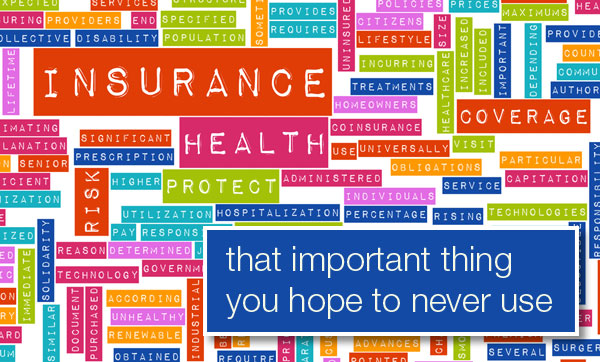
The human brain operates in a funny way when it comes to the risk and reward.
There are certain risks such as:
- our house being burgled,
- having a car crash, or
- an airline losing our luggage;
where we can easily justify the need for insurance to protect ourselves. In these situations, while there is a financial reward in not shelling out for something we may never need, we perceive the risk of that reward as too great.
Why?
Because we know so many people who have had their houses burgled, had car crashes or found themselves starting a Bali holiday with only a toothbrush and the clothes on their back.Thus we think it is highly likely it might happen to us one day too.
Income protection however is an area where it is very easy to ignore potential risks. After all, how many of us actually know someone who has experienced debilitating sickness or injury that prevented them from working for any significant period?
Well you may not know anyone, but we (at Paradigm) certainly do.
We know people who have had to juggle the devastation of being told they have cancer with the following thoughts:
How long will I be off work for?
How long will our cash reserves last before paying our mortgage becomes difficult?
Oh my god, do we even have cash reserves.
I can assure you that when someone is trying to deal with the enormity of something like cancer, all they and their family should be worrying about is getting better. The last thing they should be thinking about is money.
Recently we’ve had the dubious pleasure of being grateful we’d encouraged two of our clients to ensure their incomes were adequately insured.
Clare* is a lawyer and complications late in her pregnancy meant that she was confined to bed for the final two and a half months. As you can imagine, this was a big concern financially – especially heading into a period of maternity leave. Ordinarily income protection policies do not kick in till 90 days in which case Clare would have been left with significantly impacted earnings for that entire two months. Happily though, Clare’s policy had a bed confinement clause which meant she was protected from day one and received over $22,000 in compensation during her period of confinement.
This was an amazing outcome as Clare had only put the policy in place a year earlier and it never crossed her mind that it would need to be used in this fashion! She says:
“We were incredibly worried about our household expenses once I was confined to bed rest as we hadn’t planned for me to be off work for so long before the baby was due. We asked Mark to investigate my income protection policy and see if by any chance it afforded us coverage for this unique situation. Mark did quite a bit of legwork and back and forth with the insurance company on our behalf and was thrilled when he found out we qualified for the bed confinement clause in the policy. Once the claim was approved, it was an easy process of confirming I remained in hospital and payment was made directly to our bank account. The benefit of having the policy removed the issue of finances whilst I was in hospital, for which we were very grateful.”
Clare’s situation was a pretty unusual one – but one we were thrilled to have been able to help with.
John*, another client of ours, is currently facing a challenge far more common than Clare’s.
A professional in his early forties and married with a young child, John’s diagnosis with depression and anxiety required hospital admission for five weeks followed by ongoing treatment.
Thankfully John had taken out income protection insurance as part of the overall plan we devised for him and his family. An initial payment was processed during his bed confinement period and subsequent monthly payments have been received since.
As John is presently limited to working part-time based on his doctor’s advice, this is likely to remain in place for the foreseeable future. The income protection supplements his part time income and enables his family to live a normal life. John says:
“Without income protection I don’t know how we would have managed financially. It eliminated a major area of concern that would have significantly impacted on my recovery.
I previously viewed income protection as more of an expense and only maintained it as it was tax deductible. My opinion has significantly changed due to my circumstances. Everyone should consider income protection as part of their financial planning, you never know what the future holds.”
Income protection insurance is an insurance that most people do not think about until we bring it up with them. Most people think of sickness as a short term thing and don’t even contemplate that something as simple as tweaking their back in a weekend football game or while gardening could see them off work for months.
Even if you have accumulated a good amount of sick leave over the years, sick leave runs out pretty quickly (especially if you have recently changed jobs) and household finances can become impacted very quickly without income protection.
So what’s our message here? Simple really – get income protection insurance. Please! It’s the best money you will ever spend and it’s even tax deductible. (And hopefully you will never need to it).
*Clare and John are not these clients’ real names